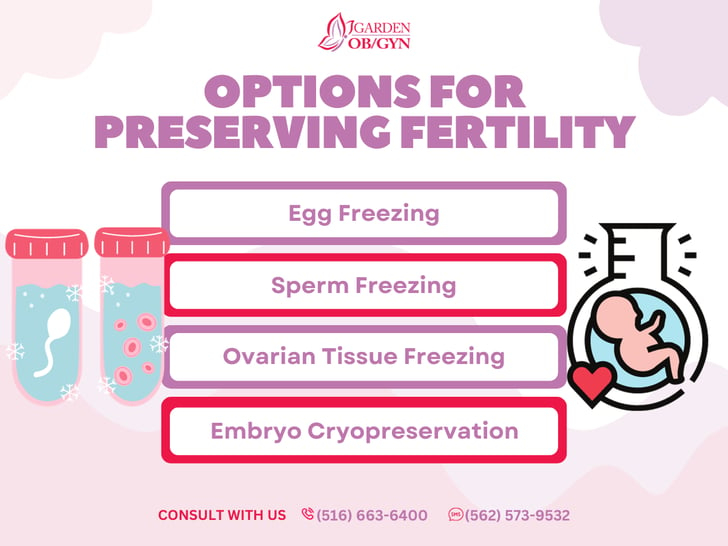Options for Preserving Fertility
Fertility preservation is vital for those anticipating challenges to future conception. This article delves into current methods, offering insights into their effectiveness, benefits, and considerations.

Fertility preservation has become a crucial consideration for many individuals facing life circumstances that may impact their ability to conceive in the future. Whether due to medical treatments, career goals, or personal choices, advancements in reproductive technology offer a range of options to preserve fertility. This article explores various methods available today, providing insights into their effectiveness, benefits, and considerations.
-
Egg Freezing (Oocyte Cryopreservation):
Egg freezing has gained popularity as a viable option for preserving fertility. This method involves stimulating the ovaries to produce multiple eggs, which are then harvested, frozen, and stored for future use. Egg freezing is particularly beneficial for women who wish to delay childbearing for personal or professional reasons.
Pros:
- Allows women to preserve their eggs during their peak fertility years.
- Offers flexibility and control over family planning.
- Can be used for both medical and non-medical reasons.
Cons:
- Success rates can vary, and not all frozen eggs result in successful pregnancies.
- The procedure requires a series of hormone injections and medical appointments.
-
Sperm Freezing (Sperm Cryopreservation):
Sperm freezing is a well-established method for preserving male fertility. Sperm is collected, processed, and frozen for later use in assisted reproductive technologies such as in vitro fertilization (IVF).
Pros:
- Provides a reliable and effective way to preserve male fertility.
- Offers flexibility in family planning, especially for those facing medical treatments affecting fertility.
- Can be a supportive option for couples dealing with male infertility.
Cons:
- The success of fertility treatments depends on various factors, including sperm quality.
- It may require multiple sperm samples for optimal results.
-
Embryo Cryopreservation:
In cases where a couple is undergoing fertility treatments like IVF, embryo cryopreservation is a common practice. After fertilization, viable embryos are frozen and stored for future use.
Pros:
- Enhances the chances of a successful IVF cycle by preserving excess embryos.
- Allows couples to space pregnancies or delay conception.
- Can be an option for those facing medical treatments that may affect fertility.
Cons:
- Not suitable for individuals who do not have a partner or do not wish to use assisted reproductive technologies.
- May involve ethical considerations, especially in cases of unused embryos.
-
Ovarian Tissue Freezing:
Ovarian tissue freezing is an experimental technique where a piece of ovarian tissue is removed and frozen. This tissue can later be transplanted back into the woman's body to restore fertility.
Pros:
- Offers an option for women who cannot undergo egg retrieval due to medical reasons.
- May be a potential option for prepubescent girls facing fertility-threatening treatments.
Cons:
- Experimental nature means limited long-term data on success rates.
- Requires surgical intervention for both removal and transplantation.
The evolving landscape of fertility preservation provides individuals with empowering choices for family planning. While these options open up new possibilities, it is crucial for individuals to consult with fertility specialists to understand the most suitable method based on their unique circumstances. As technology continues to advance, the field of fertility preservation holds promise for those seeking to build their families on their terms, ensuring that the dream of parenthood remains within reach despite life's challenges.
































